Posted by: Oliver.Johnson
Category: Farm Tyres
Tags: agricultural tyres, farm tyres, tyre repairs, tyre replacement
Comments: 0
Post Date: December 21, 2020
Oliver.Johnson2021-12-07T11:58:50+00:00
Should I Repair or Replace My Farm Tyres?
When it comes to agricultural vehicles and equipment, downtime from damaged farm tyres can be costly. While you can often repair farm tyres, there are instances where you may need a tyre replacement but how do you know what is the best solution for you? Need help with your farm tyres now
Whether you have a fleet of agricultural vehicles or a single tractor, tyre maintenance is vital and knowing the type of farm tyres and signs of damage can help. Let’s take a quick look at the different types of agricultural tyres followed by a few examples of tyre cuts that may be problematic
Types Of Farm Tyres
Farm tyres are becoming more technologically advanced to meet the specific needs of agricultural activities. Whether you are driving on roads between your fields, transporting your harvest, working in the fields or farmyard, your tyres need to be in good condition regardless of application. There are many different farming tyres for agricultural vehicles and your choice depends on the type of vehicle and its specific role. Farm tyres are typically designed for loose soil work and have an open centre tread design with a higher lug-to-void ratio which provides more traction. It also allows the tyre’s point of contact to expand under the added weight while providing room for water, soil and snow to move through the tread. You also have the option to fit turf and construction tyres to compact tractors if required. Whatever you decide to fit, choose the right tyre for the job to help keep repair costs down and make the job easier.Examples Of Damage To Farm Tyres
Regardless of where you drive or how you plough fields, your tyres work extremely hard and take all sorts of punishment. As a result, they are prone to different kinds of cuts and while some are harmless, others could render the tyre unusable. Some farm tyre cuts to look out for include the following:- Several highly visible cuts on the lugs
- Cuts at the base of the tyre lugs
- Cuts at the back of the structure only
- Cracks in the tyre rubber
- Cut on the tyre casing
- Accidental tear to the tyre sidewall
- Cut on the base of the rim
How Do I Tell If My Tyre Cannot Be Repaired?
Even if you take great care of your farm tyres by using the correct tyre pressure for specific activities, there is always going to be a risk of cuts or perforations. While some damage is more serious than others, knowing what to look out for can make all the difference. If you notice any of the following, you will likely need a tyre replacement rather than a repair.Tyre Splits On Sidewall
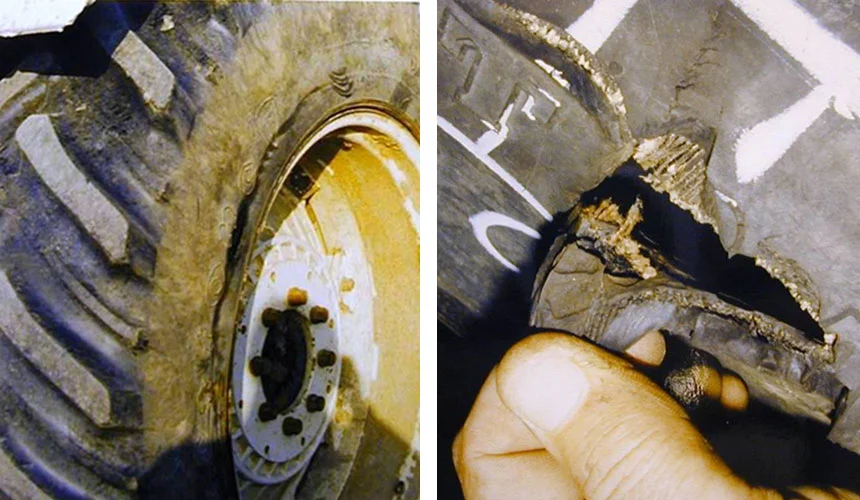
Tread Perforation
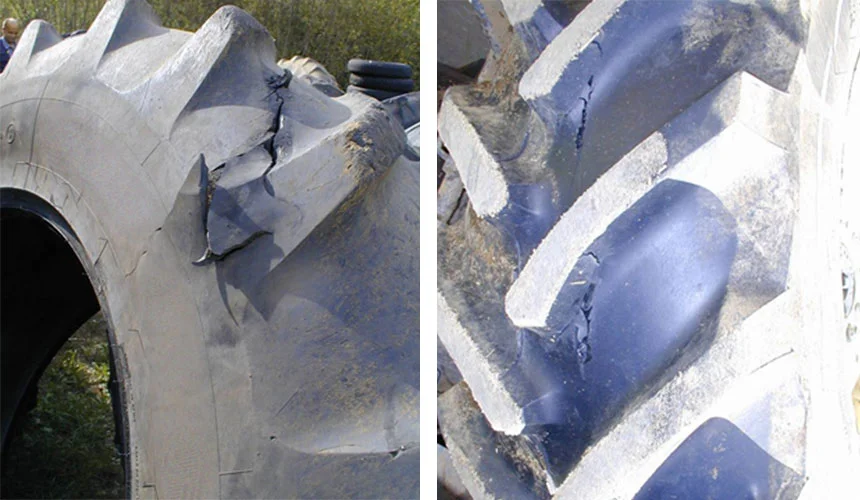
Split At The Rim Base
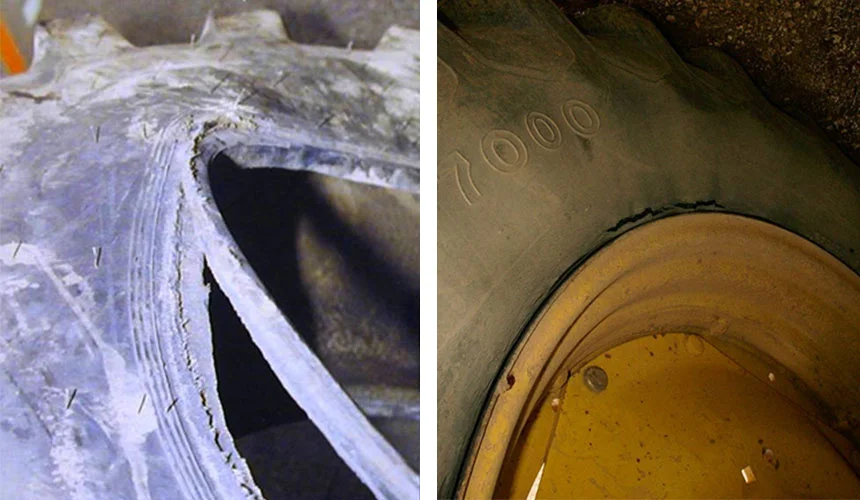
Split In The Tyre Casing
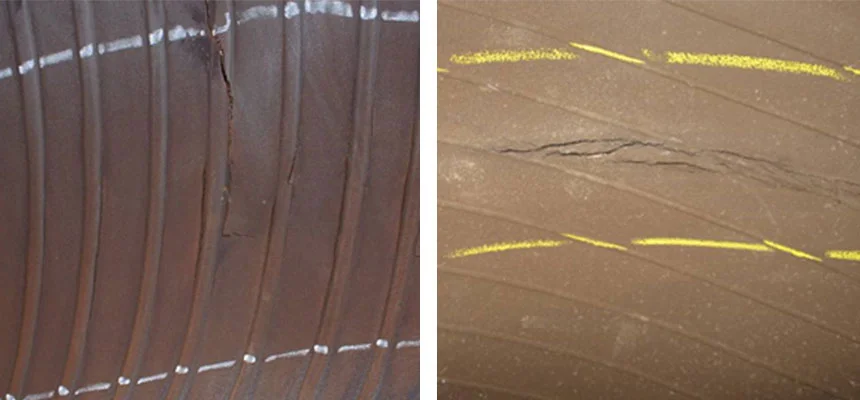
Bulge On The Sidewall Of Farm Tyres
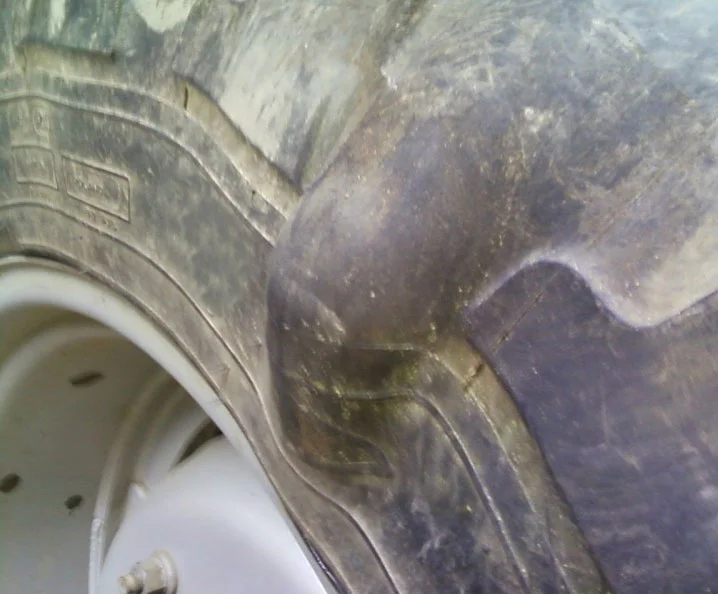
The Importance Of Tyre Maintenance
Regularly inspecting your farm tyres will help maintain them while limiting excessive wear and tear. By increasing their lifespan, you could save several thousands of pounds and avoid lengthy downtime. To ensure your farm tyres last as long as possible, make sure you do the following:- Check the manufacturer’s guidelines for the recommended tyre pressure
- Inspect your farm tyres regularly to spot any issues before they become potentially serious
- Look for premature wear as this could indicate a pressure problem or physical damage somewhere on the tyre
- We recommend doing these inspections at least every 25-50 working hours, depending on the vehicle and type of farm tyres
- Make sure you fit the right tyres for the right job. If you use the wrong tyres, their lifespan will be reduced
- Follow the recommended load index and the maximum speed of the tyre
Tips From The Experts At TyreFix
Remember, over-inflated farm tyres can cause soil compaction, lead to uneven wear and affect driving comfort. At the same time, under-inflated tyres can increase fuel consumption, make driving more difficult and possibly cause irreparable damage to the tyre casing. Considering the heavy workload of farm tyres, it’s important to follow best practices and adhere to the manufacturer’s instructions. If you are still unsure about the right tyre pressure or which farm tyres you need, speak to our team for expert advice. Not sure whether you need a Repair or Replacement? Submit your photos on our mobile app and Tyrefix will be in touch a.s.a.p. or simply give us a call on (01530) 244 444. Sources:- https://www.bridgestone-agriculture.eu/en/what-are-the-main-signs-of-damages-with-risk
- https://blog.bridgestone-agriculture.eu/when-does-a-split-make-it-necessary-to-replace-your-tractor-tyres







 Find a Tyre Fitter
Find a Tyre Fitter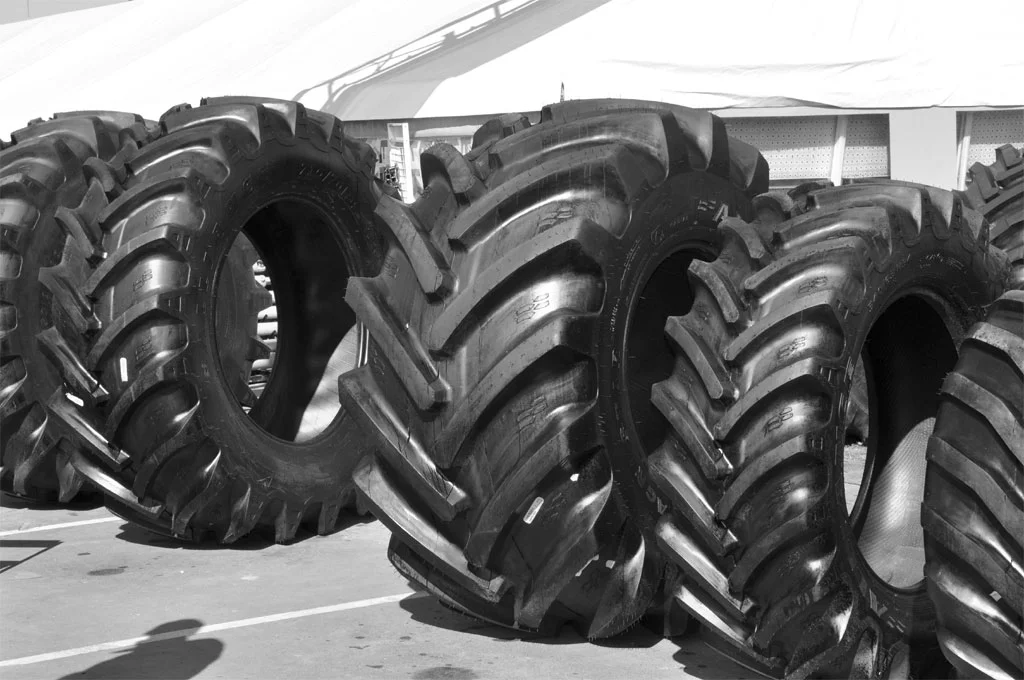
Leave a Reply